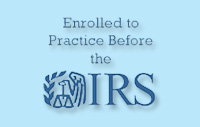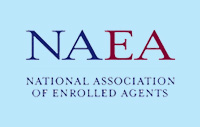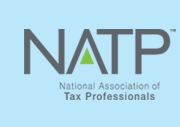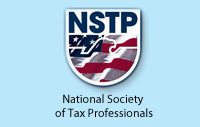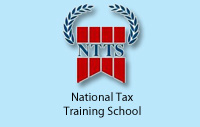What is an Enrolled Agent?
 ENROLLED AGENT (EAs) ARE AMERICA'S TAX EXPERTS
ENROLLED AGENT (EAs) ARE AMERICA'S TAX EXPERTS
Enrolled agents are federally-licensed tax practitoners who may represent taxpayers before the IRS when it comes to collections, audits and appeals. As authorized by the Department of Treasury's Circular 230 regulations, EAs are granted unlimited practice rights to represent taxpayers before IRS and are authorized to advise, represent, and prepare tax returns for individuals, partnerships, corporations, estates, trusts, and any entities with tax-reporting requirements. Enrolled agents are the only federally-licensed tax practitioners who specialize in taxation and have unlimited rights to represent taxpayers before IRS.
The enrolled agent profession dates back to 1884 when, after questionable claims had been presented for Civil War losses, Congress acted to regulate persons who represented citizens in their dealings with the U.S. Treasury Department. Enrolled agents' expertise in the continually changing field of taxation enables them to effectively represent taxpayers at all administrative levels within the IRS.
PRIVILEGE AND THE ENROLLED AGENT
The IRS Restructuring and Reform Act of 1998 provides federally-authorized practitioners (those bound by the Department of Treasury’s Circular 230 regulations) a limited client privilege. This privilege allows confidentiality between the taxpayer and the enrolled agent under certain conditions. The privilege applies to situations in which the taxpayer is being represented in cases involving audits and collection matters. It is not applicable to the preparation and filing of a tax return. This privilege does not apply to state tax matters, although a number of states have an accountant-client privilege.
CONTINUING EDUCATION
In addition to the stringent testing and application process, the IRS requires enrolled agents to complete 72 hours of continuing education every three years in order to maintain their active enrolled agent license and practice rights. NAEA members are held to a higher standard than the IRS' minimum 72 hour continuing education requirement. NAEA members must complete 30 hours of IRS-approved continuing education hours each year (which would lead to a total of 90 hours for each three-year enrollment cycle). Because of the expertise necessary to become an enrolled agent and the requirements to maintain the license, there are only about 52,600 practicing enrolled agents.
THE DIFFERENCES BETWEEN ENROLLED AGENTS AND OTHER TAX PROFESSIONALS
Only enrolled agents are required to demonstrate to the IRS their competence in all areas of taxation, representation and ethics before they are awarded unlimited representation rights to represent taxpayers before IRS. Unlike attorneys and CPAs, who are state licensed and who may or may not choose to specialize in taxes, all enrolled agents specialize in taxation.
NATIONAL ASSOCIATION OF ENROLLED AGENTS
The principal concern of the National Association of Enrolled Agents and its members is honest, intelligent and ethical representation of the financial position of taxpayers before the governmental agencies. NAEA members belong to a strong network of experienced, well-trained tax professionals who effectively represent their clients and work to make the tax code fair and reasonably enforced.
ETHICAL STANDARDS
Enrolled agents are required to abide by the provisions of the Department of Treasury’s Circular 230, which provides the regulations governing the practice of enrolled agents before the IRS. NAEA members are also bound by a Code of Ethics and Rules of Professional Conduct of the Association.
Quoted from the National Association of Enrolled Agents

